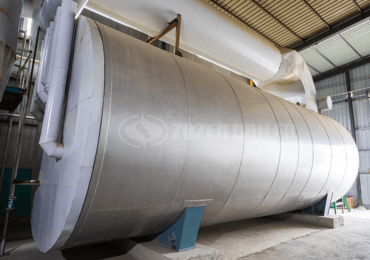pressure in thermic fluid heater
Thermal oil systems are superior to water boiling systems
A thermal oil boiler is nearly always cheaper to operate and maintain than water boilers. High pressures required to operate water and steam boilers makes them far more hazardous than thermal oil boilers. Other noticeable advantages with thermal oil systems are the lack of corrosion, lime deposits and scale that are common with heated water or steam boilers thus raising the operating costs of a water boiler considerably. Also, thermal oil boilers do not require makeup water or efficiency draining steam traps.
With thermal oil systems, the user is given the capability of high-temperature operation (up to 600F with organic thermal oils and 800F with certain synthetics) at quite low pressures. Due to the low operating pressure and properties of thermal fluids, most heaters are built to ASME Section VIII, Div. 1. A licensed boiler operator is not typically required.
Thermal oil systems go by various names
Many people around the world refer to these systems by different names. Thermal oil heater, thermal oil system, thermal oil boiler, thermal fluid heater, thermal fluid system, thermal oil boiler, thermic fluid heater, hot oil heater, hot oil system, and hot oil boiler. All of them refer to the same type of closed loop liquid phase heat transfer system. And many people use the terms thermal oil boiler or thermal fluid boiler even though most systems do not involve any type of vaporization.
Lahandi Baskoro's Blog



